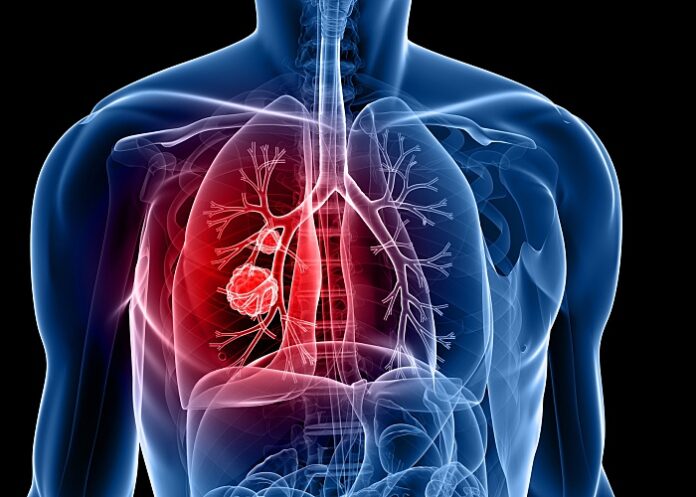Cigarette smoking is overwhelmingly the main cause of lung cancer, yet only a minority of smokers develop the disease. A study led by the Albert Einstein College of Medicine in the United States suggests that some that some smokers may have robust mechanisms that protect them from lung cancer by limiting mutations.
Results of the study were published online in Nature Genetics on 11 April 2022. The article below was released by the New York-based Einstein college:
The findings could help identify those smokers who face an increased risk for the disease and therefore warrant especially close monitoring.
“This may prove to be an important step toward the prevention and early detection of lung cancer risk and away from the current herculean efforts needed to battle late-stage disease, where the majority of health expenditures and misery occur,” said senior co-author Dr Simon Spivak, professor of medicine, epidemiology and population health and of genetics at the Einstein college and a pulmonologist at Montefiore Health System.
Overcoming obstacles to study cell mutations
It has long been assumed that smoking leads to lung cancer by triggering DNA mutations in normal lung cells. “But that could never be proven until our study, since there was no way to accurately quantify mutations in normal cells,” said Dr Jan Vijg, a study co-senior author and professor of genetics, and of ophthalmology and visual science at the Einstein college and the Center for Single-Cell Omics at Shanghai Jiao Tong University’s School of Medicine in China.
Vijg overcame that obstacle a few years ago by developing an improved method for sequencing the entire genomes of individual cells.
Single-cell whole-genome sequencing methods can introduce sequencing errors that are hard to distinguish from true mutations – a serious flaw when analysing cells containing rare and random mutations.
Vijg solved this problem by developing a new sequencing technique called single-cell multiple displacement amplification (SCMDA). As reported in Nature Methods in 2017, this method accounts for and reduces sequencing errors
The Einstein researchers used SCMDA to compare the mutational landscape of normal lung epithelial cells (that is, the cells lining the lung) from two types of people: 14 never-smokers, ages 11 to 86; and 19 smokers, ages 44 to 81, who had smoked a maximum of 116 pack years. (One pack year of smoking equals one pack of cigarettes smoked per day for one year.)
The cells were collected from patients who were undergoing bronchoscopy for diagnostic tests unrelated to cancer. “These lung cells survive for years, even decades, and thus can accumulate mutations with both age and smoking,” said Spivack. “Of all the lung’s cell types, these are among the most likely to become cancerous.”
Mutations caused by smoking
The researchers found that mutations (single-nucleotide variants and small insertions and deletions) accumulated in the lung cells of non-smokers as they age – and that significantly more mutations were found in the lung cells of the smokers.
“This experimentally confirms that smoking increases lung cancer risk by increasing the frequency of mutations, as previously hypothesised,” said Spivack. “This is likely one reason why so few non-smokers get lung cancer, while 10% to 20% of lifelong smokers do.”
Another finding from the study: the number of cell mutations detected in lung cells increased in a straight line with the number of pack years of smoking – and, presumably, the risk for lung cancer increased as well. But interestingly, the rise in cell mutations halted after 23 pack years of exposure.
“The heaviest smokers did not have the highest mutation burden,” said Spivack. “Our data suggest that these individuals may have survived for so long in spite of their heavy smoking because they managed to suppress further mutation accumulation. This levelling off of mutations could stem from these people having very proficient systems for repairing DNA damage or detoxifying cigarette smoke.”
The finding has led to a new research direction. “We now wish to develop new assays that can measure someone’s capacity for DNA repair or detoxification, which could offer a new way to assess one’s risk for lung cancer,” said Vijg.
This study was supported by grants from the National Institutes of Health.
Study details
Single-cell analysis of somatic mutations in human bronchial epithelial cells in relation to aging and smoking
Zhenqiu Huang, Shixiang Sun, Moonsook Lee, Alexander Y Maslov, Miao Shi, Spencer Waldman, Ava Marsh, Taha Siddiqui, Xiao Dong, Yakov Peter, Ali Sadoughi, Chirag Shah, Kenny Ye, Simon D Spivack and Jan Vijg
Author affiliations: Albert Einstein College of Medicine; Voronezh State University of Engineering Technologies in Russia; Montefiore Medical Center; University of Minnesota; Touro College
First published online by Nature Genetics, volume 54, on 11 April 2022.
Abstract
Although lung cancer risk among smokers is dependent on smoking dose, it remains unknown if this increased risk reflects an increased rate of somatic mutation accumulation in normal lung cells.
Here, we applied single-cell whole-genome sequencing of proximal bronchial basal cells from 33 participants aged between 11 and 86 years with smoking histories varying from never-smoking to 116 pack-years.
We found an increase in the frequency of single-nucleotide variants and small insertions and deletions with chronological age in never-smokers, with mutation frequencies significantly elevated among smokers.
When plotted against smoking pack-years, mutations followed the linear increase in cancer risk until about 23 pack-years, after which no further increase in mutation frequency was observed, pointing toward individual selection for mutation avoidance.
Known lung cancer-defined mutation signatures tracked with both age and smoking. No significant enrichment for somatic mutations in lung cancer driver genes was observed.
See also from the MedicalBrief archives
Stopping smoking after lung cancer diagnosis may boost survival by nearly 30%
Stopping smoking before 45 can wipe out 87% of lung cancer risk
British GPs urged to be more alert in diagnosing lung cancer in non-smokers
Stricter tobacco controls in Europe could avert 1.65m lung cancer cases in 20 years
US advises CT scans for younger and lighter smokers in drive against lung cancer

